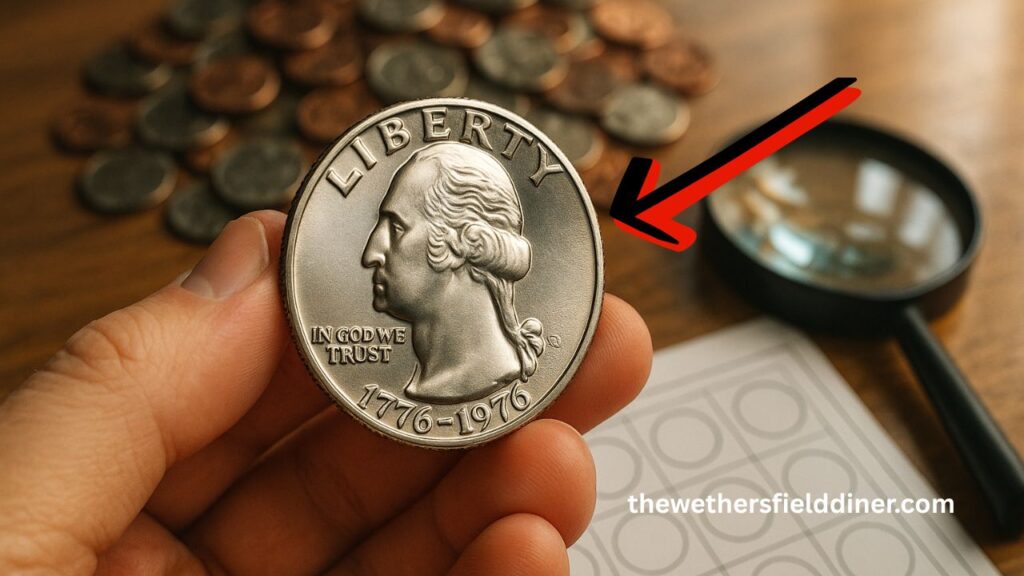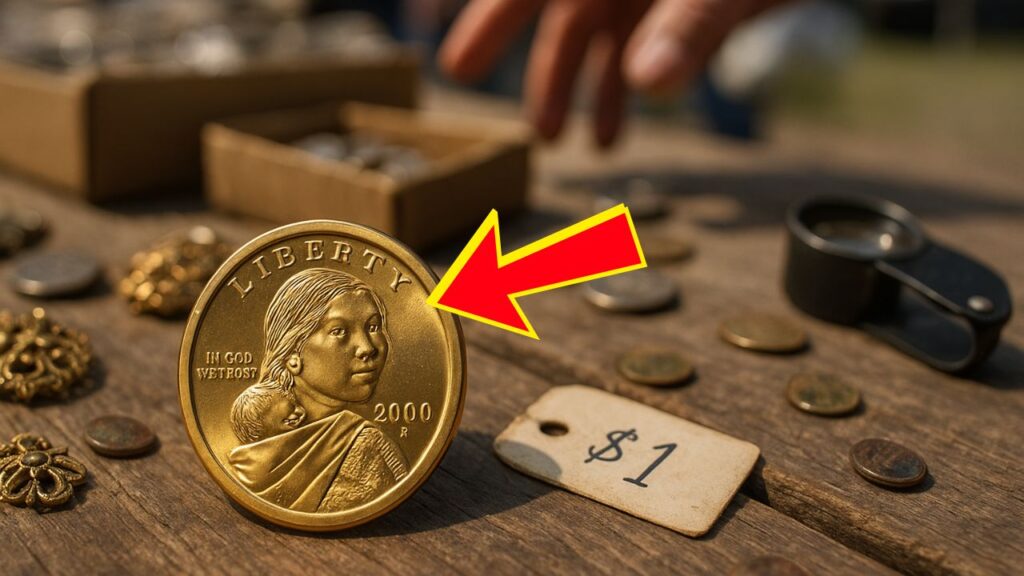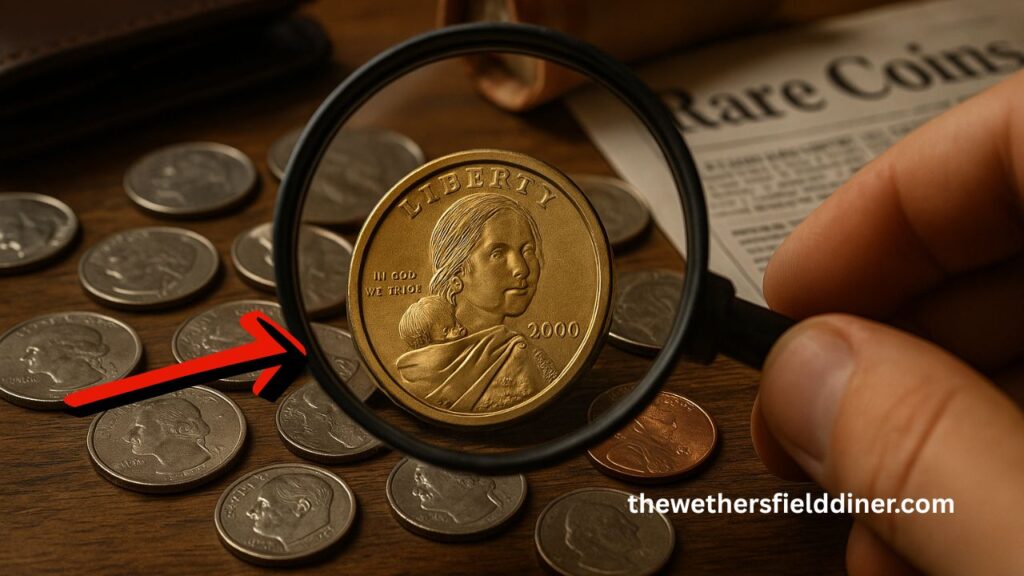In 2025, one extraordinary coin continues to make headlines: the 1976 Bicentennial Quarter from the Philadelphia Mint bearing a strong double‑die obverse error, with one specimen selling for an astonishing $7 million. This article explores why such coins still occasionally turn up in circulation and what makes this variety so valuable, rare, and coveted.
Why It Matters: The $7 Million Bicentennial Quarter
According to recent reports, a Bicentennial Quarter featuring a dramatic double‑die error sold at auction in 2023 for $7 million. This specific variety—characterized by doubling on obverse lettering such as “LIBERTY” or the date—is exceedingly rare and highly prized among numismatists.
Double‑Die Errors: What to Look For
- Obverse Doubling: Look for mirrored or blurred edges on letters like LIBERTY or the year 1976, particularly on coins minted in Philadelphia (no mint mark) .
- Reverse Doubling: Some coins show doubling on inscriptions such as UNITED STATES OF, and even the stair lines in the Liberty Bell design—though these are considered distinct from the high‑value Philadelphia variety .
Are These Quarters Still Circulating in 2025?
Yes—they occasionally appear unexpectedly! As recently as 18 hours ago, one collector reported finding a strong double‑die Philadelphia Bicentennial Quarter in change, confirming the possibility that such treasures still roam everyday circulation
Key Details of the Rare Bicentennial Quarter
| Feature | Details |
|---|---|
| Year & Design | 1976 Bicentennial Quarter with dual date 1776–1976 |
| Mint Location | Philadelphia Mint (no mint mark) — doubles on obverse letters |
| Type of Error | Strong double-die obverse affecting “LIBERTY” and the date |
| Auction Record Value | Sold for $7 million in 2023 |
| Estimated Survivors | Extremely few known; only one documented public sale at this level |
| Condition Needed | High grade (MS65 or above) to command multi‑million‑dollar premium |
| Circulation Status in 2025 | Still occasionally found in everyday circulation |
Why So Valuable?
- Extreme Rarity: Far fewer examples exist compared to common varieties.
- High-Grade Need: Only coins certified in top condition grades reach multi-million values.
- Clear Doubling on Obverse: Authentic hub doubling (not machine doubling) is necessary to qualify.
- Collector Demand: Interest in dramatic modern error coins remains strong—even in 2025.
Other Bicentennial Error Varieties (Less Valuable)
While the Philadelphia double‑die is the most valuable, other error types can still command premiums, though much smaller:
- Denver or San Francisco mint errors: Doubling on reverse legends, misalignment, or filled mintmarks—often worth hundreds to thousands, not millions.
- Common Errors: Off‑center strikes or grease-filled dies are interesting but rarely exceed a few hundred dollars.
FAQs
How can one of these rare quarters still be found in circulation?
Because only a few rare examples were struck and most remain undiscovered, it’s possible for one to slip through into general circulation even decades later.
What exactly is a double‑die error and how is it identified?
A double‑die error occurs when the die itself was doubled during manufacture, yielding clear, repeatable doubling on letters—for example on the “R” in LIBERTY or the date digits.
What steps should I take if I think I found a rare double‑die Bicentennial Quarter?
Do not clean the coin. Document the errors with clear photos, then submit it to a professional grading service (PCGS or NGC) for certification and authentication.


